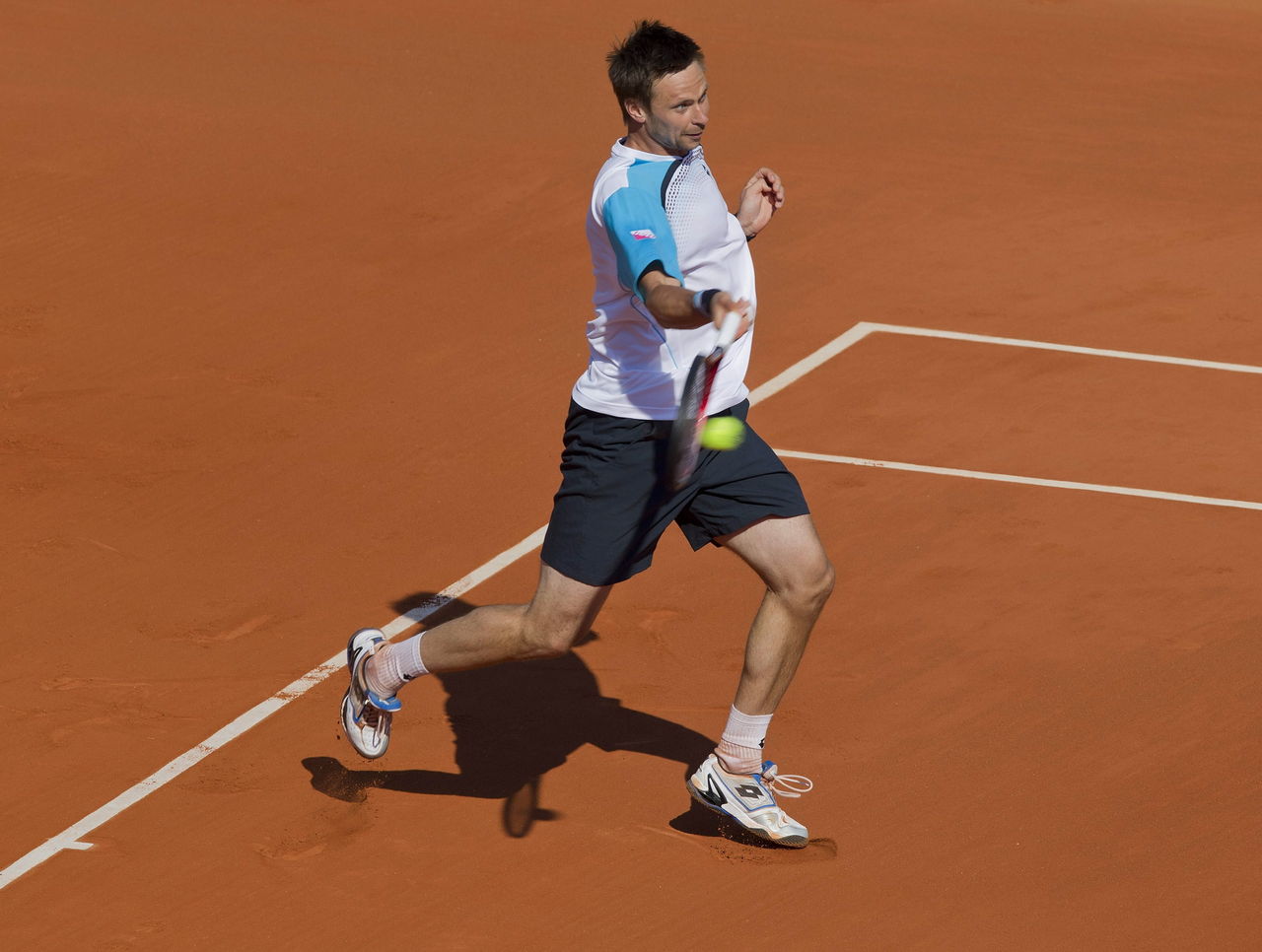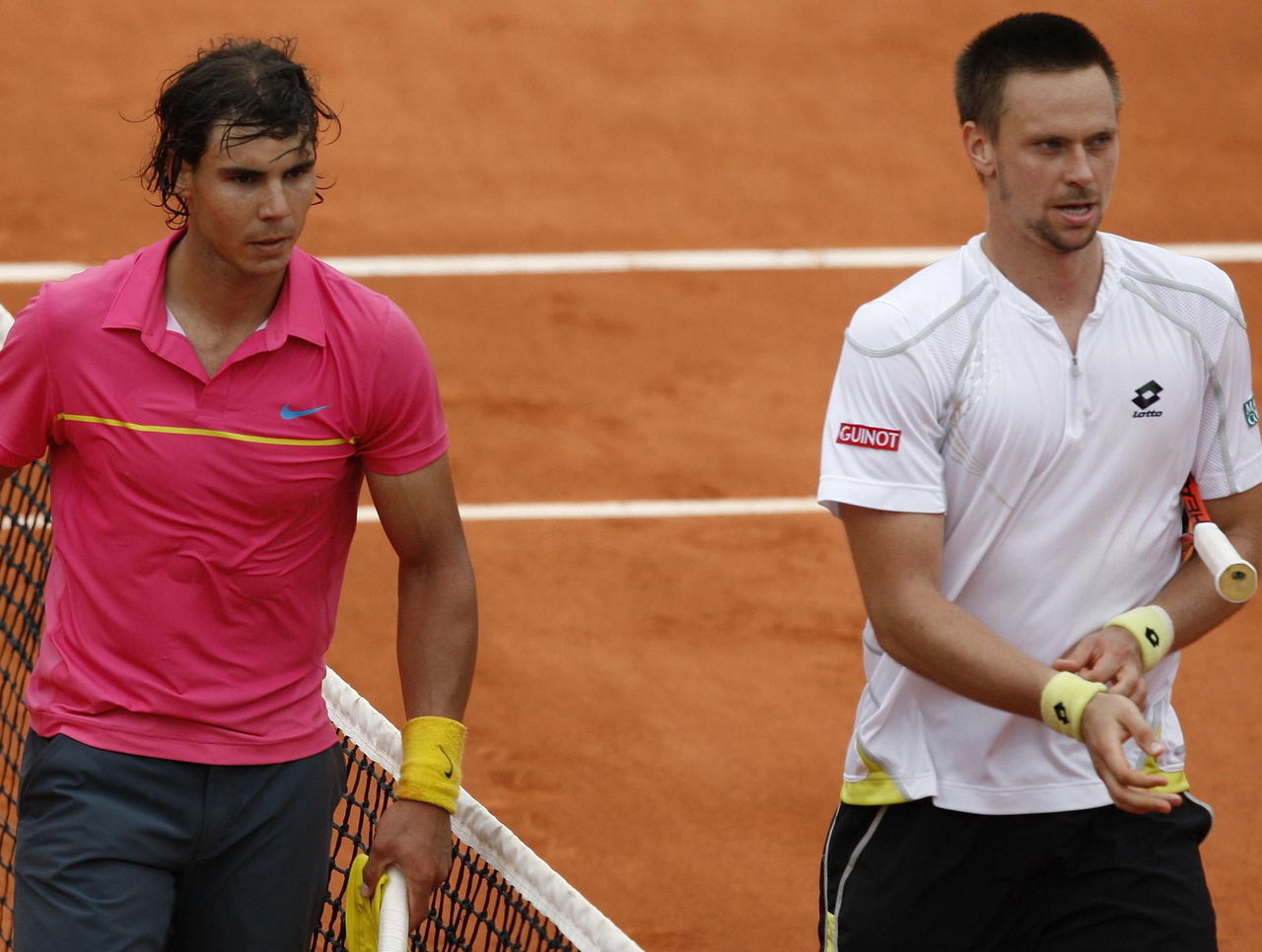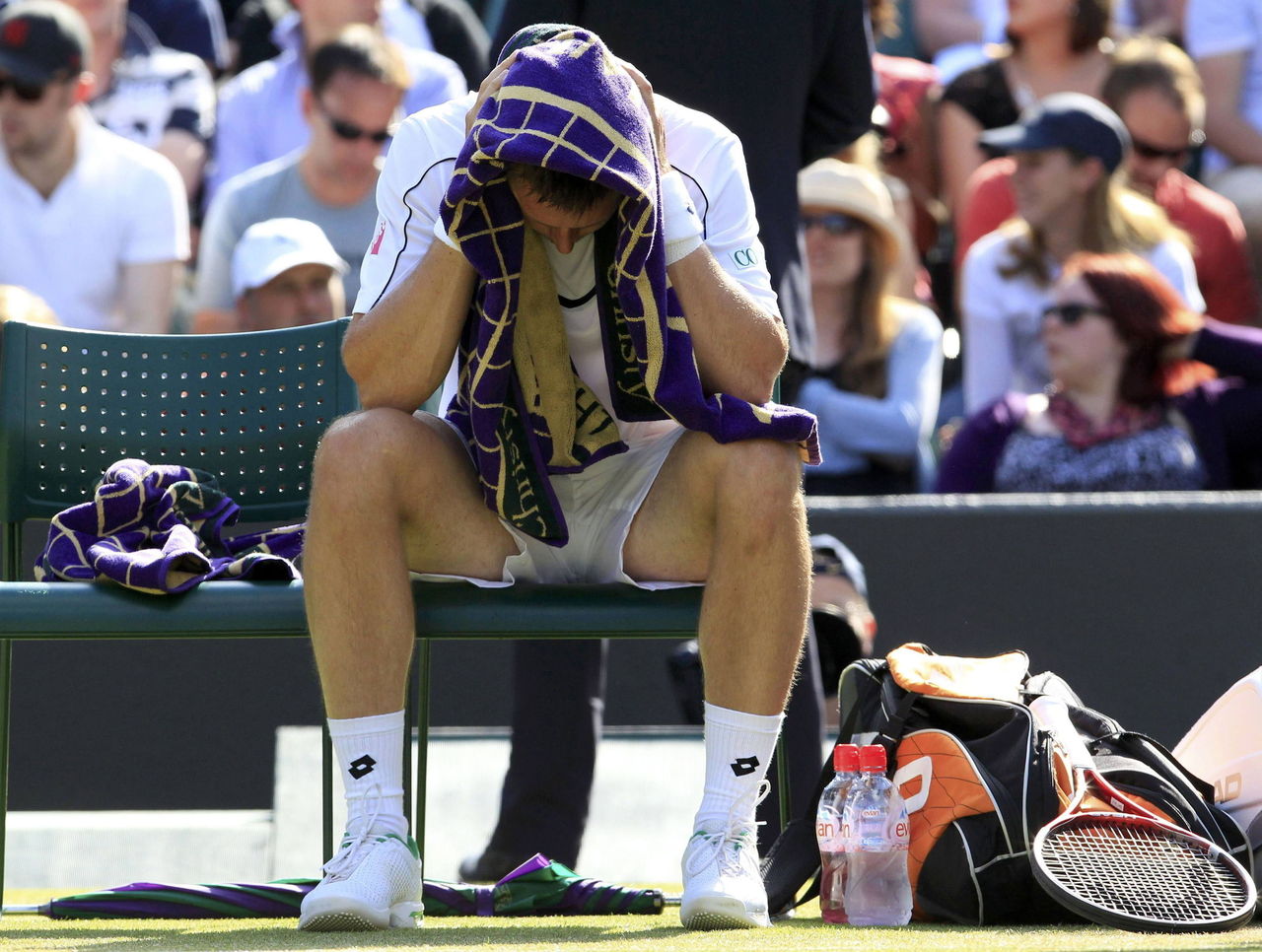King for a day: The shocking rise and abrupt end to Robin Soderling's career
More than four years after Robin Soderling's final match on the ATP Tour, and seven since he pulled off the upset of a lifetime, the former world No. 4 remains close to the game.
"I do a lot of stuff," Soderling told theScore. "Commentary for Swedish television and I work with my own company, RS Tennis, which I put most of my time in."
He's only 31, and undoubtedly would like to still be playing, but this will have to do. Soderling's had plenty of time to think about retirement, but there are still some things he's coming to terms with.
"Tennis was such a big part of my life since I was 4 years old and my kids were both born after I retired and couldn't play anymore," he said. "So they have never really seen me play, which sometimes I feel is a little bit sad."
Soderling, who officially retired from the sport in December, had a relatively brief, yet undeniably memorable, pro career. The aforementioned shocker came against Rafael Nadal, then defending his French Open crown for the fourth time, in 2009.
That fourth-round bracket-buster is top of mind with the year's second major only days off. And Soderling's accomplishment is all the more remarkable considering his disdain for clay.

"I grew up in Sweden playing indoors for nine months and then I played on clay for three months every year," Soderling said. "So in the beginning of my career I really didn't like playing on clay at all."
It's easy to see why. Soderling had a power game with strong groundstrokes and heavy serves, a style that best translates to hardcourts. However, he soon started to look at his skills from a different angle, and realized he had the tools necessary to succeed on the slow surface.
"Everybody thinks that I was a better player on really fast surfaces," he said. "I had a good serve but my swings were really big, so I liked slower surfaces because it gave me more time. And even though the conditions were heavy, because I had good groundstrokes, I could always hit true. That's why on clay when it was heavy balls and heavy conditions, I always played my best."
Dethroning the King

If you put money on Soderling to defeat Nadal at the '09 French Open, you're probably still living off the winnings.
Soderling was the No. 23 seed; Nadal had yet to lose a match at Roland Garros. The thought of him upending the Spaniard never crossed anyone's mind - save for Soderling's. Nadal was the undisputed "King of Clay." Plain and simple.
Still, Soderling found a way to conjure up some confidence.
"I think I played really well the week before and I had been playing pretty well the three matches before in the tournament," he said. "Of course, I knew it was going to be a tough match and no one has beaten him before in Paris. I think even if you don't really believe in yourself, you really have to make yourself believe. Otherwise, if you go on court and you don't believe, I don't think there's any chance you can win. I really had to tell myself that I had a good chance to win even though I knew it was really difficult."
Soderling came out firing, stunning Nadal 6-2 in the first set. He was playing with confidence and swinging for the fences. Nadal managed to regroup and win a second-set tiebreak, but it was clear Soderling had something special that day.
Nadal was confounded by his opponent's shot-making. He had no answer for the Swede's power game. Every time he made a push, Soderling pushed back.
It was over in four sets - an upset for the ages.
Soderling would go on to make the final, where he lost to Roger Federer. In some ways, you can argue Soderling's victory over Nadal played a major part in Federer capturing the Grand Slam. The only major that eluded Federer to that point was the French, and he had lost three times to Nadal in the final. By vanquishing Nadal, Soderling opened the door for Federer to claim his one and only title at Roland Garros.
The improbable victory over Nadal got more impressive in the years that followed. Nadal won the next five French Opens, making Soderling the only man to beat him at the tournament in a decade, until Novak Djokovic finally accomplished the feat last year.
Soderling avenged his loss to Federer, defeating him in the 2010 French Open quarterfinals to end Federer's streak of 23 consecutive semifinal appearances at a major. Soderling was on the rise, reaching a career-best No. 4 world ranking later that year and gaining a newfound belief in himself.
"I think I learned a lot from the whole tournament in '09. Before I never passed the fourth round in any grand slam and I had been beating almost all the top players before, but in smaller tournaments. I hadn't done it in the big tournaments. When I did that the first time I really proved to myself that I could do it, and in five sets. It's a lot in your head."
But no one could've predicted what would happen next.
Coming to terms with the end

During Wimbledon 2011, Soderling fell ill. What was originally thought to be a minor virus turned out to be glandular fever, better known as mono. He was forced to take a break from the game.
Over the next four-and-a-half years, Soderling made several attempts to return to the court, but the illness lingered. Things got so bad that there were many days when he struggled to get out of bed. He was forced to finally retire for good last December.
"Off and on it's been difficult," he said. "I was sick for a lot of years and I didn't make the decision suddenly. For many years I tried to come back. I didn't give up, but as the months and years went on it kind of grew into me a little bit and then it made it so much easier. But of course it was a very tough decision because I think every player wants to retire on their own terms and they want to play as long as they enjoy the sport.
"I was still enjoying the game and in my head I was planning to play for many more years."
Soderling admits there were times when he was ill that he couldn't handle watching the sport.
"In the first couple of years I couldn't really watch it," he added. "I didn't enjoy it because I saw all these players winning grand slams like (Stan) Wawrinka and (Marin) Cilic and it was really hard because I really wanted to play myself, so I didn't really like to watch it."
His outlook has changed, though. Fatherhood has given him a better perspective on his situation.
"When I was in my own kind of bubble I thought tennis was everything," Soderling said. "And you get unhealthy and then you realize health is the more important thing. Then when I got better I had kids and I realized kids are also more important. It's been so much easier to take my mind off not being able to play again when I had the kids. It really helped me a lot."
The final chapter of his tennis journey was hard to swallow, but he's content. Soderling's feeling better, at ease with the game, and grateful for the little things.
"It's a great feeling for me just to train again," he said, "even if it's not on the highest level and I'm not trying to become a professional."
And his kids will get to see it.
HEADLINES
- US Open final delayed because of Trump-related security
- Wheelchair tennis trying to capitalize on rise in popularity
- Japanese duo Kamiji, Oda victorious in US Open wheelchair singles
- Vandromme, Ivanov triumph in US Open junior finals
- Granollers, Zeballos win US Open doubles for 2nd Grand Slam title of year